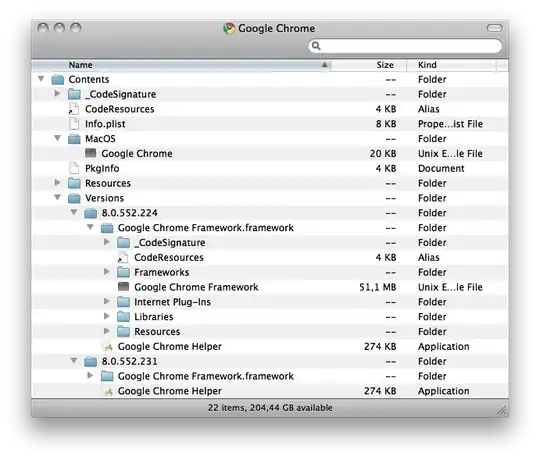A DLL is similar to a folder, but it allows for multiple programs/executables to access it at once, thus conserving memory (I think).
What is Mac's equivalent of a DLL? I was looking through the Google Chrome folders inside ~/Library/Application Support, and instead of the regular Windows Default.dll there was just a folder, "Default" as a regular file, with contents, I assume, would regularly be inside the DLL.
Does the Mac equivalent provide the same function?
